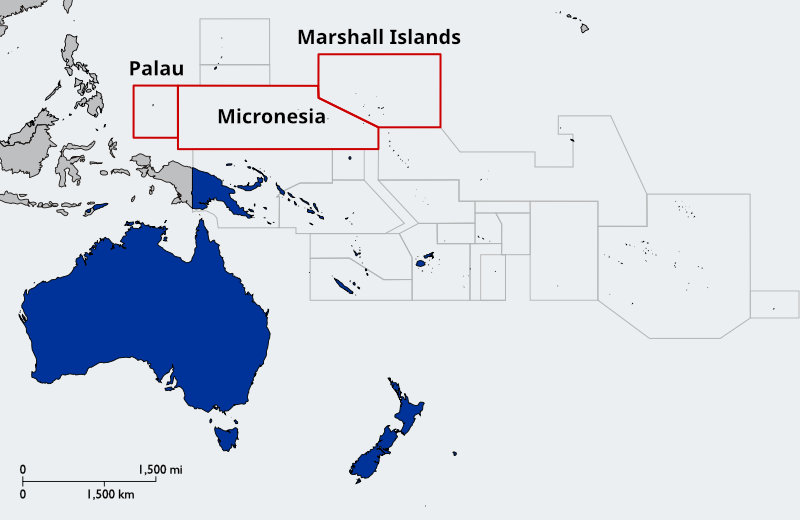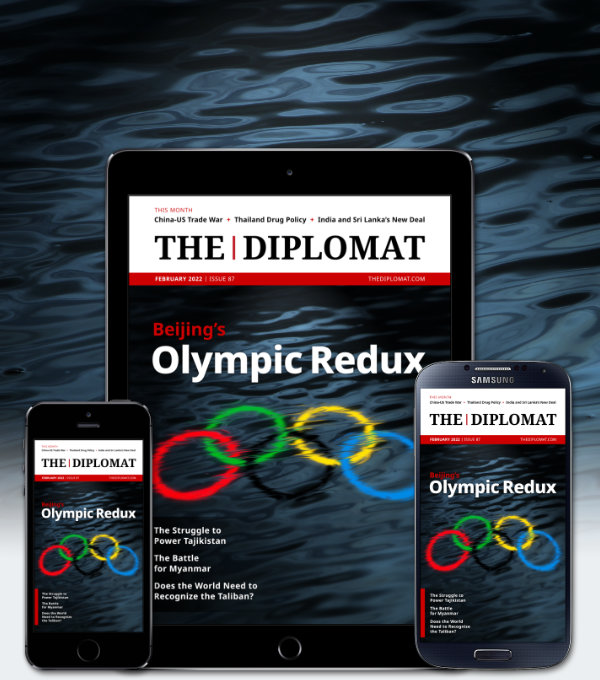| Welcome to the latest issue of Diplomat Brief. This week our top story explores the ferocious political debate in Nepal over the MCC, a grant from the United States. We also have an interview with Megan Walsh, author of “The Subplot: What China Is Reading and Why It Matters,” on what China’s literary scene can tell us about modern Chinese society. |
| Story of the week |  | POLITICS Nepal’s Fierce MCC DebateWhat Happened: In 2017, Nepal and the U.S. signed an agreement under the Millennium Compact Challenge that would see Washington provide a grant of $500 million, mainly for electricity infrastructure. But five years later, the grant has become a political hot button issue in Nepal, in no small part due to the eagerness of U.S. officials to situate the MCC project within the broader Indo-Pacific Strategy. Wrapped up in concerns about China-U.S. competition and Nepali sovereignty, the MCC grant became a wedge issue used by warring factions in Nepal’s domestic political wrangling. Our Focus: The MCC agreement has been most fiercely opposed by factions of Nepal’s communist parties, who have long favored China and been suspicious of U.S. intentions. But that narrative is only part of the problem. “You can never overlook the anti-imperial bent of Nepali communists,” Khadga KC, professor at the Department of International Relations and Diplomacy at Tribhuvan University in Kathmandu, told The Diplomat. “But I believe something else is also at play behind the political opposition to the compact”: Nepal’s unstable internal political dynamics. Every party in Nepal has, during their time at the helm, supported the MCC. Once out of power, however, parties – or even individual leaders – find political benefits in loudly opposing the MCC on the grounds of defending Nepal’s sovereignty. What Comes Next: The MCC issue has become so toxic that Nepal’s major political parties, given a choice, would steer clear of it. Going into elections slated for 2022 and 2023, no leader wants to be projected as “selling their country to the Americans.” Even if the grant is eventually approved, the messy political drama has tarnished the MCC’s – and, by extension, the United States’ – reputation in Nepal. Ironically, the gift of $500 million, which the U.S. likely envisioned as a boost for its image, has backfired spectacularly. Read this story |
| Behind the News | INTERVIEW Megan WalshMegan Walsh, author of “The Subplot: What China Is Reading and Why It Matters,” on the role of censorship in Chinese literature: “Apart from online fiction, which finds itself under increasing scrutiny – and is much easier to delete and disappear at the touch of a button – writers do seem to have a degree of freedom to write what they want, so long as they don’t become too popular.” Read the interview |
| This Week in Asia | Northeast Asia Is North Korea Changing Its COVID Strategy?Since the pandemic began in early 2020, North Korea has gone full isolationist to prevent the spread of COVID-19. It closed borders and shut down trade, with severe economic consequences. Tentative signs of resumed trade with China signal that Pyongyang might be changing tactics – but a real reopening is not possible without vaccination. So far, North Korea has refused all offers of vaccines from abroad. Find out more | South Asia Uttar Pradesh Heads to the PollsFebruary 10 kicks off a month of voting in state assembly elections in Uttar Pradesh. India’s largest state by population, UP is often seen as a bellwether for national politics. Campaigning has been fierce as the BJP seeks to hold onto power in the state and opposition parties jostle to prove they have the best chance of defeating Modi’s electoral juggernaut. Find out more | Southeast Asia Philippines Presidential Campaign Kicks OffThe Philippines this week officially began its three-month presidential election campaign, in which 10 candidates are vying to succeed Rodrigo Duterte and become the country’s 17th president. Currently leading the pack is Ferdinand “Bongbong” Marcos Jr., the son of the former dictator, who is seeking to complete the remarkable rehabilitation of his family’s controversial legacy by conquering the presidential palace. But Philippine elections often throw up surprises, and a lot can happen between now and Election Day on May 9. Find out more | Central Asia Kazakhstan: New Protests, Old IssuesResidents in Zhanaozen are back on the streets demanding jobs; workers at a power plant in Aktau are demanding a raise; and in Almaty, which is still cleaning up from “bloody January,” a small group of protesters over the weekend demanded the resignation of the newly appointed akim and direct election of future akims. These strikes and protests have all been small, but the grievances remain consistent: Better socioeconomic conditions. Find out more |
| Visualizing APAC |  | The Marshall Islands, Micronesia, and Palau – the three Pacific Island states with which the U.S. has Compacts of Free Association (COFAs) – occupy strategic locations in the Pacific. See the full picture |
| Word of the Week | MAGAZINE 몰카Molka: The Korean term for hidden cameras, generally placed in public bathrooms, hotel rooms, and hospital rooms, which secretly take images and videos of unsuspecting visitors. Find out more |
|  |




